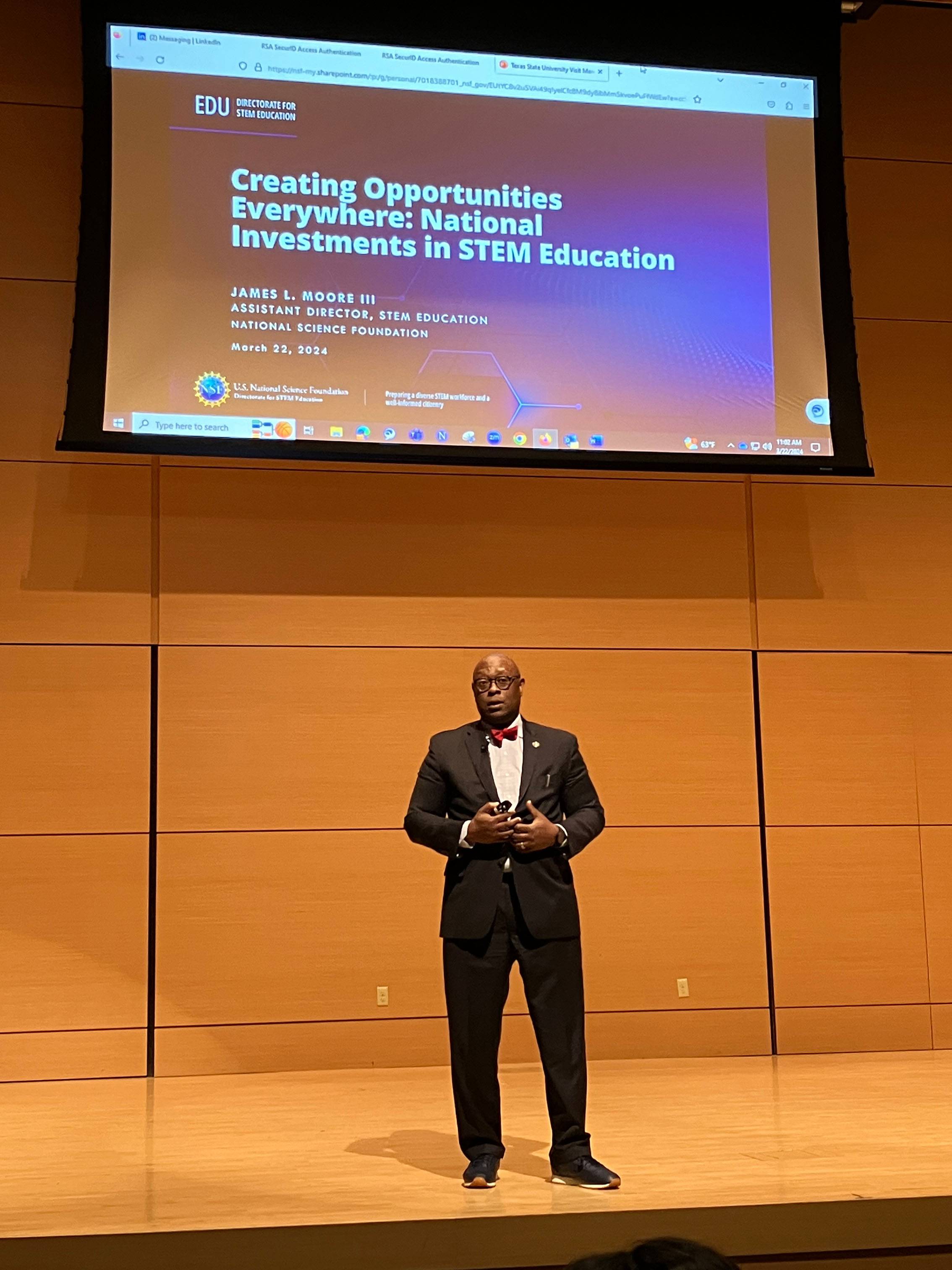Charlcee Cervantez | April 8, 2024

James Moore III, Ph.D., assistant director for the Directorate for STEM Education (EDU) at the National Science Foundation (NSF), visited Texas State University for an insightful discussion on the NSF EDU's vision and priorities for research and funding.
The event, hosted by the College of Education, provided valuable insights into strategies for successful proposals to STEM Education Research Funding Awards and for building national STEM education research capacity and impact through Hispanic Serving Institutions (HSIs) and Minority Serving Institutions (MSIs).
Moore began his address by emphasizing the critical need for widespread participation in STEM fields in today's global environment, highlighting economic, educational, social, career, and national security implications. He stressed the importance of leveraging STEM fields to address contemporary challenges and noted the importance of making STEM accessible for the most vulnerable communities in the country. While acknowledging the NSF's support for top-level innovation in fundamental sciences, he underscored the indispensable role of science teachers and the necessity of STEM workforce development for employment opportunities.
“Dr. Moore transmitted some of his deep passion for getting Americans ready for a future where even more people will be using STEM training in their daily jobs while also collectively responding to the biggest challenges of the modern world,” said Duncan Selby, research coordinator for pre-award administration for the College of Education Research Office.
Furthermore, Moore praised TXST's efforts in amplifying the impact of STEM education for all. He outlined challenges that included ensuring equitable access to and in STEM; recruiting, preparing, and retaining students; improving learning outcomes and participation; and building capacity.
“This convening included researchers from all seven of Texas State’s academic colleges and both campuses, demonstrating the powerful base of innovative STEM education research occurring across Texas State University,” said Michael O’Malley, dean of the College of Education.
Throughout his presentation, Moore reiterated the NSF's commitment to seeking partnerships, encouraging students to apply for scholarships and faculty to pursue grants in various areas. He also encouraged TXST personnel to consider serving as program officers or reviewers for NSF grant opportunities.
The event served as a platform for sharing knowledge and fostering collaborations to advance STEM education research and funding efforts. Attendees gained actionable insights and forged meaningful connections to address the challenges and opportunities in STEM education.
Share this article
For more information, contact University Communications:Jayme Blaschke, 512-245-2555 Sandy Pantlik, 512-245-2922 |
